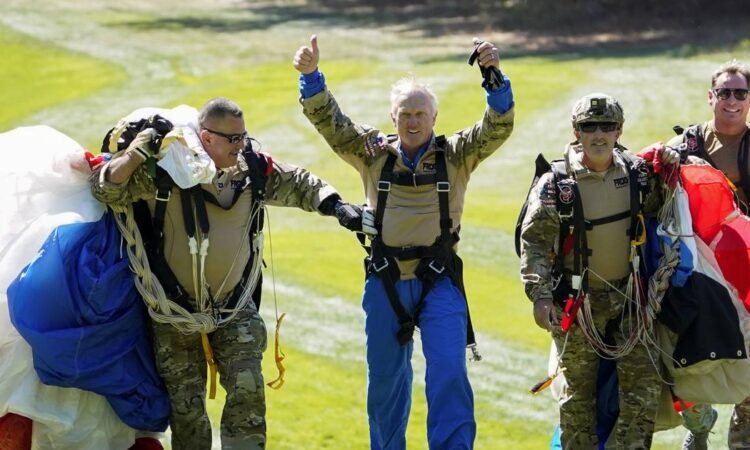
Professional golf, at its happiest, was fronted by singers, comedians and airlines, all of whom are now defunct, National Airlines missed less than Jackie Gleason.
Money was not incidental as much as insufficient, first prize at the 1980 Glen Campbell-LA Open being $45,000 to Tom Watson compared to this year’s $3.6 million to Jon Rahm, awarded by some car company or other
The first million dollar golf tournament was the 1987 Doral, itself now on the defunct list save the fingerprints of overseer Donald Trump, the groveling groomsman of Middle Eastern so-and-so’s, nameless here out of respect for victims and survivors.
I remember asking Fuzzy Zoeller, a notable of the period, what he thought about playing golf for a million dollars. “It’s about time,” he said.
So, it has always been about money with professional golf, somebody else’s money, of course. And in one of the greatest sports scams ever, golf grew into an international octopus with tours here and there, assuming the check would clear and it usually did.
While it is not entirely clear how this happened, how this curious little game, this “good walk spoiled,” according to Mark Twain, charmed eager donors into giving it more and more money, what is even less clear is how golf became a model of dignity and integrity, the validator of decency to those who would use it. Take the Masters, for instance, maybe the most revered of tournaments, a whim of the rich, for years a stubborn fortress of race and gender exclusion, all forgiven because the place is lovely, and the bird songs are pre recorded.
None of that bothered golf and while none of Augusta’s faults compare to those of Saudi Arabia, the point is golf will adjust as long as the money is good.
Or as Roy McIlroy, leading light against LIV golfers, concluded after learning he was the sap of the year, “At the end, money talks.”
The money comes from an ominous something called a “sovereign wealth fund,” a pile of billions set aside to make the world think better of the Saudis, and why they should care is a human curse. They want to be liked, as we all do.
Money can’t buy happiness? Sure, it can, though I admit that golfers don’t always show it. Has there ever been a more sour sports figure than Tiger Woods, only lately through age and injury becoming treasured?
Arnold Palmer and Jack Nicklaus created the pro tour, wresting it away from the PGA, the club pros, because of money, and peace lasted until even more money, obscene money, was shoved into the pockets of a few tour notables, and the LIV tour was born with creepy Aussie Greg Norman more or less in charge.
In spite of money and confusion, LIV barely lived, a mere whisper when, as we know, real sports are top of the voice rants, endless and everywhere.
All the PGA tour had to do was to wait out the inevitable collapse of LIV, but instead decided, if they were giving money away — no matter how infected — to take it, as we await the inevitable demand of the Saudis for something in return.
LIV stopped by our vicinity at Rich Harvest Farms in Sugar Grove last year, as it plans to again in September, not long after the real tour comes again to Chicago at venerable Olympia Fields, no choice, really.
I suppose we can excuse all this suing and countersuing and anti-trusting and immorality and hypocrisy and — let’s be honest — greed to progress, not always welcome.
I said last year that LIV would never make it here, that it would fold. I was a year off, but good riddance and welcome back Brooks Koepka, not that you were missed.
One more story from the age of innocence. Arnold Palmer, then where Woods is now but without the damage, won a tournament fronted by Danny Thomas in Hollywood, Florida, my old neighborhood.
My recall is less that Palmer had staved off age for a while longer than that of irate pro-am participant Milton Berle storming into the tournament office and demanding from the tournament director — Oscar Fraley, the “Untouchables” author — where his gift bag was.
Selfishness and golf have always been companions. So, really, no surprises here.






